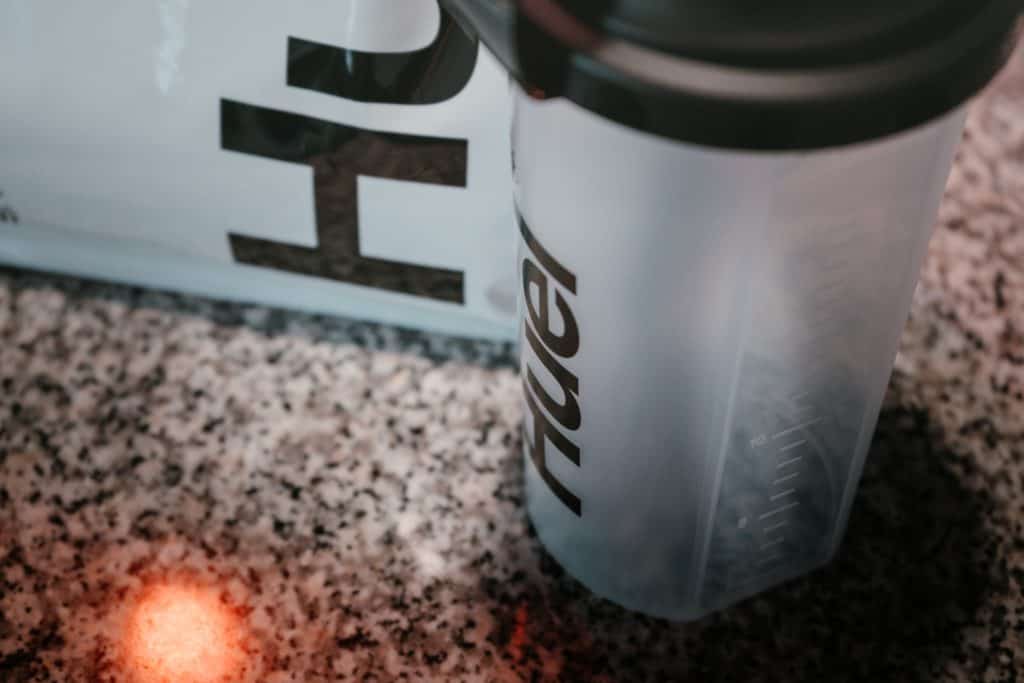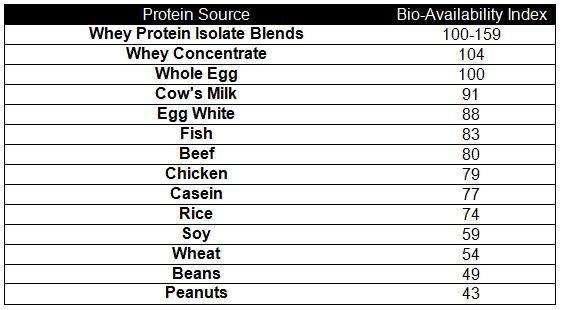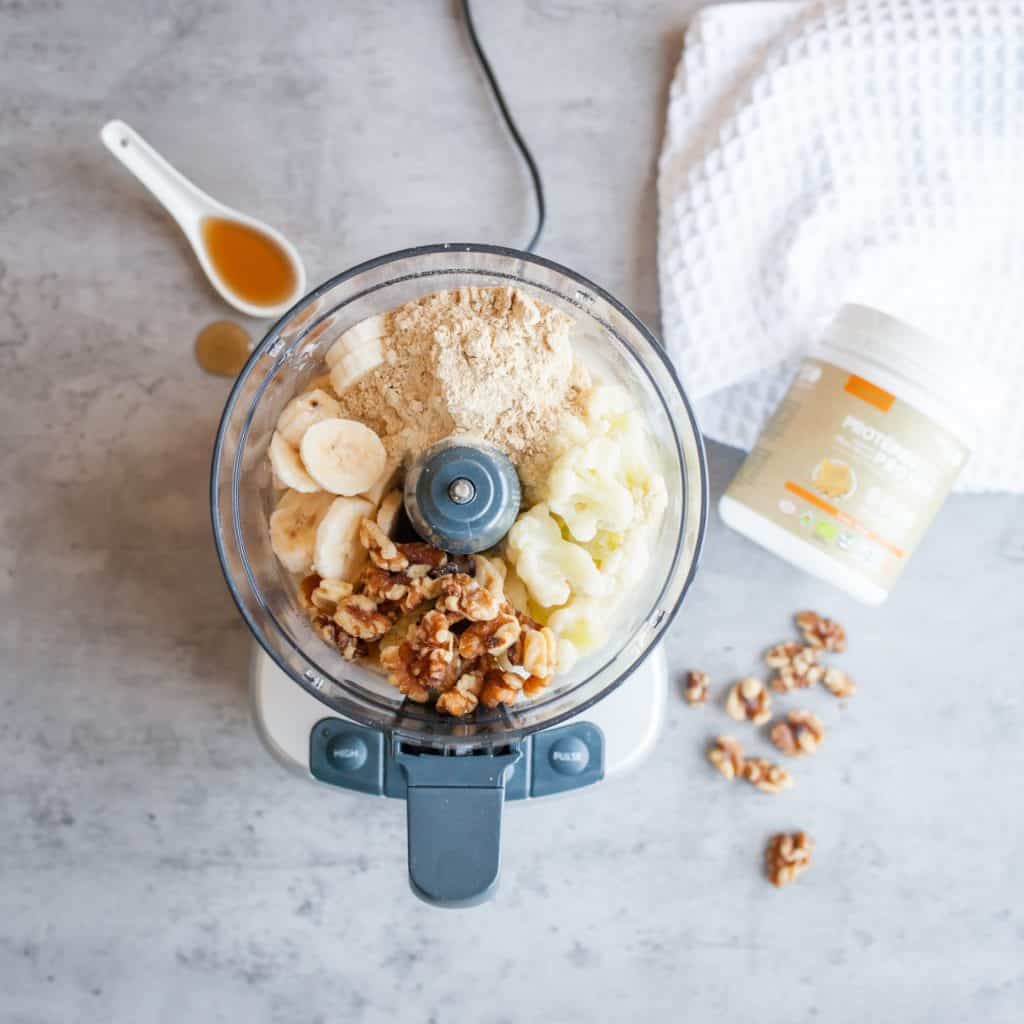
Protein powder is one of the most widely consumed dietary supplements in the world today. In fact, most people look at it as a food product more than a typical supplement found in vitamin stores.
Protein needs for the purpose of muscle building are typically based on body size, with the standard being one gram per pound of lean mass. Getting adequate protein to build muscle can be a challenge with food alone, especially for people with a low appetite.
Even if you are new to the gym, it is perfectly fine and sometimes even encouraged to supplement with protein shakes. In fact, protein shakes have benefit for people who don’t work out at all.
As a result they’ll turn to protein powder to help fill those needs. But with the vast array of protein products on the market, it can be difficult to decipher what is the best for one’s needs.
Beginners to the gym in particular may be confused about the best option for them. Not only are they new to lifting and working out, but diet and supplementation as well. It’s overwhelming to walk into a supplement store or shop online and see literally hundreds of different protein options.
You wouldn’t put a novice lifter on an advanced workout program; it would be too much of a burden for them to handle. People who are new to the gym don’t need advanced periodization techniques since the goal at this stage is just to improve form and get stronger.
You may think that supplementation follows the same principle. Since a beginner wouldn’t follow an advanced training program, there must be a special protein powder for beginners as well.
But this is not the case.
It’s not as if you wouldn’t give a beginner the best quality protein powder because they’re “not ready” for it. That’s like saying a beginner should eat cheap cans of tuna fish because they’re not ready for filet mignon.
Therefore, a beginner can take a high quality protein like whey concentrate or whey isolate, just like an advanced lifter would.
Putting aside variables like cost and availability, there is no reason why a beginner shouldn’t start their lifting journey consuming whey protein.
Sure, if there are two similar whey products and one is considerably more expensive, you could go with the cheaper option. But in no situation should you go out of your way to choose an inferior product just because you’re new to the gym. You may even pay up for a protein supplement just because you like the taste.
Selecting the right protein, whether it’s in food or supplement form, comes down to protein quality. A good protein will contain all the essential amino acids necessary to build muscle, while also having a high bioavailability score so that the body can properly absorb and use it. Whey protein achieves both of these qualities.
Protein quality is measured by a metric called biological value (BV). Whey protein concentrate and whey protein isolate score higher in biological value than any food source, including eggs and chicken.

For those who have whey intolerance, there are still many worthy alternatives when it comes to supplementation. This was not the case years ago, but modern supplement companies have done a great job diversifying their product line to accommodate more people.
Keep in mind that whey intolerance is not necessarily lactose intolerance. Whey isolate is particularly low in lactose due to the filtration process it goes through.
Whey is an easy addition to any diet since it is one of the leanest forms of protein available. Whey isolate brands like Iso-100 contain only trace amounts of carbohydrates and fats.
Anyone who tracks their macronutrient intake will find that there is little maneuvering to be done when adding protein powder to the diet, compared to steak which has additional fats and Greek yogurt which has additional carbs. Whey concentrate and whey isolate is virtually 100% protein.
Protein serves a variety of functions that go beyond building muscle. In fact, only a small percentage of protein consumed is used to build muscle. Protein also aids with other tissues like hair and skin, and helps the immune system overall.
While their overall daily protein needs will be different, both men and women can supplement with whey protein powder. Some protein powder companies are geared toward women, but this is simply marketing. It is highly unlikely that any protein supplement would contain something truly specific to men or women in particular.
Do Beginners Need Protein Powder
While protein powder is not a necessity, whether beginner or advanced, it certainly helps the muscle building process in the long term.
Consistency will take you further than any acute change in diet or training. Consistently reaching protein needs day by day, coupled with hard resistance training, will undoubtedly lead to muscle growth.
Reaching protein goals can be a challenge with food alone. Some days you will be busy or appetite will be low. Some days you just may not feel like cooking.
While whey protein powder is one of the best sources of protein to build muscle, its greatest attribute may be convenience.
A protein shake can be made in seconds, requiring just water and the powder itself. You could even pre-mix it the night before and leave it in the refrigerator. And if that isn’t enough, nearly every supermarket, convenience store, and gas station is stocked with RTD (ready-to-drink) protein shakes to fill your needs.
In addition, protein flavoring has improved dramatically in the past few years. Early proteins would not only mix poorly, but would taste terrible. Nowadays, protein powders are a delight to drink. Some even have licensing deals with popular brands and flavor protein powder like your favorite snack products. Most protein powders don’t even need a blender to mix, it can be done right in a shaker bottle.
With this improvement in flavoring technology and mixability comes the potential for creativity with protein powders. Many people use protein to bake, others add protein to oats to make “proats.” There are websites dedicated to protein powder recipes. People bake muffins, cookies, and mug cakes with whey protein.

Whey protein is also a popular option post workout. While the anabolic window for muscle growth is larger than initially thought (over 24 hours as opposed to 1 hour), many fitness enthusiasts still opt for a protein shake immediately after working out to jumpstart recovery. This is also a great option for people who work out in the morning and immediately head to their job.
A beginner may have a hard time assessing the different types of protein supplements when shopping for one. Sometimes the label isn’t so obvious, and you can’t quite tell if a specific product is for you. This guide helps differentiate between protein powder and meal replacements.
Another popular protein supplement is weight gainers. Weight gainers, sometimes called mass builders, can pack upwards of 1,000 calories per serving. This obviously is only applicable to certain people in the gym. Be sure to check the supplement facts panel to make sure the calorie and macronutrient counts are in line with your goals.
How Much Protein Powder a Beginner Should Take
A quality diet will have diversity in food options and nutrients. While there is no technical upper limit for protein powder intake, you want the diet to be balanced. Therefore, you don’t want to rely solely on protein powder to fit all of your protein needs.
The standard rule is that 1-3 scoops of whey protein per day is an acceptable intake as part of a balanced diet. This amounts to about 25-75 grams of actual protein, which for most people leaves options for other sources like meat, fish, and eggs to fill out the remainder of the diet.
It’s important to assess your individual tolerance to protein powder, as overconsumption can lead to gastrointestinal distress in some people. This could be due to the protein source itself, sweeteners used to flavor the protein, or other ingredients.
Aside from that there is no reason why any healthy individual can’t consume up to 3 scoops per day.
The best way to consume protein is spread throughout the day. This goes for both food and protein shakes.
The body cannot adequately store protein, unlike carbs which can be stored in muscle/liver and fats which can be stored in adipose tissue. As a result, consuming 3-5 high protein meals throughout the day is optimal for building muscle. This ensures that the body is getting a steady dose of amino acids all day.
Many people use protein powder around the time of their workout; pre workout due to its easy digestibility and post workout to aid recovery. However, there are no limitations to how and when protein powder can be used. It can be taken between meals, before bed, or even as a meal itself.
Recent Posts
Protein is the only macronutrient that can directly build muscle. Muscle itself is made up of mainly proteins and water. Resistance exercise combined with a high protein diet is the foundation of...
Starting a workout program for the first time is an exciting endeavor. Many people can attest to the addictiveness of working out. But with any skill set comes a huge learning curve. Lifting...
